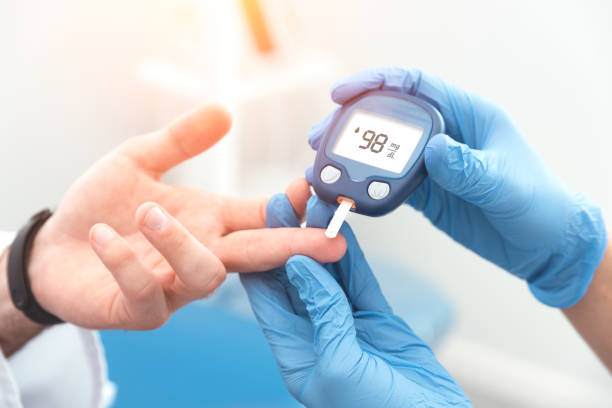What’s the difference between type 1 and type 2 diabetes
Diabetes is a chronic condition that affects millions of people worldwide. It is crucial to understand the differences between the two main types of diabetes: type 1 and type 2. While they share the characteristic of elevated blood sugar levels, their causes, symptoms, and treatment approaches are distinct. In this article, we will delve into the disparities between these two forms of diabetes to enhance our understanding and awareness.
Cause
Cause Type 1 diabetes
Type 1 diabetes, often diagnosed in childhood or early adulthood, is an autoimmune disease. It occurs when the immune system mistakenly attacks and destroys the insulin-producing cells in the pancreas, known as beta cells. The exact cause of this autoimmune response remains unclear, but genetics and environmental factors are thought to play a role.
Cause Type 2 diabetes
Type 2 diabetes is primarily caused by insulin resistance, a condition in which the body’s cells become less responsive to insulin, leading to elevated blood sugar levels. Several factors contribute to the development of type 2 diabetes, including obesity, sedentary lifestyle, poor diet, family history, and age. Unlike type 1 diabetes, type 2 diabetes is not an autoimmune disease.
Symptoms
Symptom Type 1 diabetes
The symptoms of type 1 diabetes often develop rapidly and include frequent urination, excessive thirst, unexplained weight loss, fatigue, increased hunger, and blurred vision. If left untreated, type 1 diabetes can lead to a life-threatening condition called diabetic ketoacidosis (DKA).
Symptom Type 2 diabetes
The symptoms of type 2 diabetes usually develop more gradually and can be mild initially. Common signs include increased thirst, frequent urination, fatigue, blurred vision, slow wound healing, recurring infections, and tingling or numbness in the hands or feet.
Treatment
Type 1 diabetes treatment
Managing type 1 diabetes involves a lifelong commitment to insulin therapy. Since the body no longer produces insulin, regular insulin injections or the use of an insulin pump are essential to regulate blood sugar levels. Additionally, close monitoring of blood sugar levels, a healthy diet, regular exercise, and a proactive approach to managing the disease are crucial for individuals with type 1 diabetes.
Type 2 diabetes treatment
The treatment for type 2 diabetes typically involves lifestyle modifications, including a healthy diet, regular exercise, and weight management. In some cases, oral medications or injectable drugs may be prescribed to enhance insulin sensitivity, stimulate insulin production, or control blood sugar levels. If necessary, insulin therapy may be required. Regular monitoring of blood sugar levels and routine check-ups with healthcare professionals are important for managing type 2 diabetes effectively.
Risk Factors
Risk Factors Type 1 diabetes
The risk factors for type 1 diabetes include family history of the disease, genetic predisposition, and certain environmental triggers, such as viral infections.
Risk Factors Type 2 diabetes
The risk factors for type 2 diabetes include being overweight or obese, leading a sedentary lifestyle, having a poor diet high in processed foods and sugar, having a family history of diabetes, and being over the age of 45.
While both type 1 and type 2 diabetes involve elevated blood sugar levels, they differ significantly in their causes, symptoms, and treatment approaches. Type 1 diabetes is an autoimmune disease, often diagnosed in childhood, and requires lifelong insulin therapy. Type 2 diabetes, on the other hand, is primarily caused by insulin resistance and is often managed through lifestyle modifications, including a healthy diet and regular exercise. By understanding these differences, we can promote early detection, effective management, and a better quality of life for individuals living with diabetes. Remember, proper education and awareness are crucial in the fight against diabetes.
Schedule an appointment with a diabetologist today.
Many people successfully manage their diabetes by making thoughtful lifestyle choices and following medical advice. At Swasthya Multispeciality Clinic, we offer a specialised diabetes management programme under the guidance of Dr. Prakhar Garg to meet your care needs and provide you with the proper tools to manage your condition. Do you have more questions about diabetes? Schedule an appointment today and get treated by the best diabetologist in Noida.


